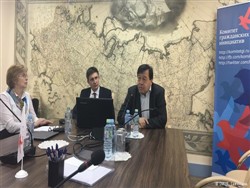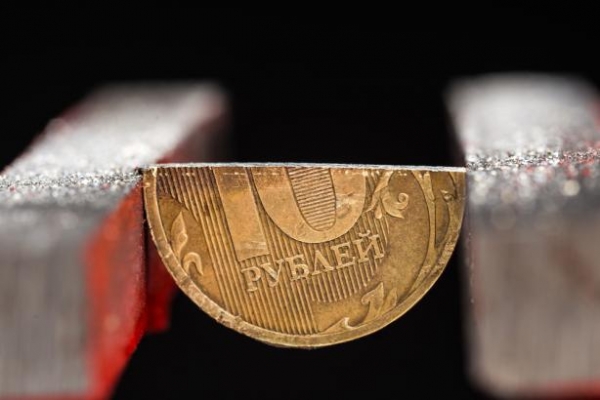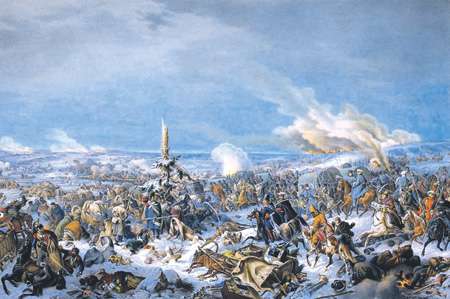
The Committee of civil initiatives analyzed the extent and causes of emigration from Russia. According to experts, this process is fraught for Russia with the loss of intellectual potential.
On 6 October, the Committee of civil initiatives (CGI) in Moscow presented a report on “Emigration from Russia in the late XX – early XXI century”. On the basis of Russian and foreign statistical and sociological data the experts tried to characterize the flow of emigration from Russia, to assess its current magnitude, trends and implications.
Two-faced statistics
According to Rosstat, the number of emigrants, who left Russia between 2011 and 2015, significantly increased: if in 2011 the figure was recorded was 29.5 thousand people in the past year, 51.8 per thousand. However, as the authors of the report, it should be very critical of the statistics offered by the Rosstat, as it is often many times lower than the data recipient countries.
For example, if you take the statistics of the leading countries on the admission of Russian citizens – Germany, the US and Israel – you can see a significant difference. Rosstat reports that in Germany in 2013 went 3979 Russians, German statistical office gives the figure of 33 233 persons from the Russian Federation. In the United States from Russia in the same year, according to Rosstat, emigrated 1485 Russians, according to the American extras – 9753. In Israel, according to the Russian side, – 1090, according to the host, – 4094 person.
Thus, as noted in the report, “we can say: to get a realistic idea about the scale of emigration from Russia Rosstat annual data need to be adjusted 3-4 times in the direction of increasing”.
Where to go
The researchers created a typology of countries which prefer to leave the Russians. The first would include the already mentioned traditional emigration countries – Germany, the US and Israel. Second – countries with high standard of living, where predominantly resettled representatives of disadvantaged and highly qualified professionals. Is the United Kingdom, Switzerland, Austria, Australia and the Scandinavian countries.
The third category includes the EU countries with lower cost of living, to simplify the mechanisms of legalization, such as Spain, Italy, Greece, Czech Republic, Latvia, Poland. Finally, the fourth type includes the country attractive to business immigration, investor, academic and scientific migration: Turkey, Japan, South Korea, China and others.
Five waves of emigration
The authors of the report broke migration flows in several waves. In the first wave (1990-1994) abroad on a permanent basis, leaving refugees and ethnic migrants. The departure of scientists took place on an interim basis, but then often turned into permanent emigration. In the second wave (1995-2000), there were entrepreneurs and students (mostly students).
The third wave (2000-2005) joined the rentiers, as well as potential brides and grooms. “Marriage has become a convenient form of naturalization,” explained one of the authors of the report, the OIG expert Olga Vorobyov. Finally, the migrants and the fourth (2006-2010) and the fifth (2010-2015) waves added businesses. At first it was mainly small and medium entrepreneurs. In the beginning of this decade more clearly was the “leak” of big business.
“Push” motives
According to experts leaving the country, Russian immigrants are guided by socio-economic and socio-political motives. The first group consists of unstable conditions for doing business, the criminal approaches to the regulation of the economy, low wages, low government spending on science, the lack of clear growth prospects. Among the socio-political is called sympathy for the opposition views, the risk of open involvement in the protests, the weakness of civil society institutions.
Answering the question DW, did these political reasons together with the intensification of the protest movement of 2011-2012, reason for the growth of emigration from Russia in recent years, the moderator of the presentation, a member of the COMMITTEE, Deputy Director of the Institute of world economy and international relations (IMEMO) Yevgeny Gontmakher answered in the negative. “The main causes of all socio-economic, he said. – The main stream of 2012-2013 was regardless of policy. To say that 2011 has provoked a wave of emigration, as it was in 1917, it would be an exaggeration”.
Who wins
As the researchers say, on the one hand, emigration – the process is strictly positive. “It seems like everybody wins: people get the opportunity to meet their needs, Russia’s avoiding the accumulation of critically-minded citizens, the host country acquires human capital”, – says Olga Vorobyov.
However, on the other hand, according to her, Russia in the face of those who left deprived of the most active citizens. “The remaining are doomed to slower development. This brings the process of emigration in the plane of the problems of development and problems of the future. It is fraught with loss of demographic and intellectual potential,” she said. The alarm of the expert is the fact that “elites do not associate their future with Russia. They export not only capital, but also their children. So those who make the decision on the development of the country, in fact no motivated.”
The second author of the study, the expert OIG Alexander Grebenyuk said in his speech that the most depressing fact is the departure from Russia a large number of scientists, that is the actual “brain drain”. “This is not a circulation, and the loss, he stated. – We lose scientists irrevocably”. The study showed that among the foreign scientists living in Germany, immigrants from Russia took first place in 2013 worked there 3672 scientists from Russia.








